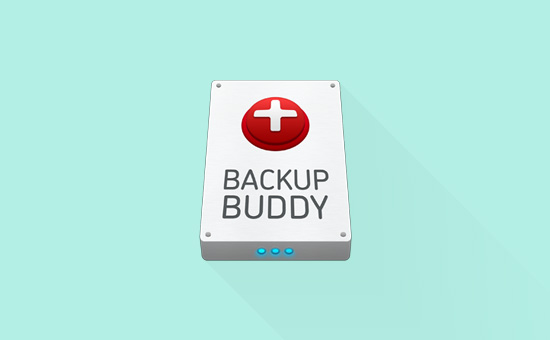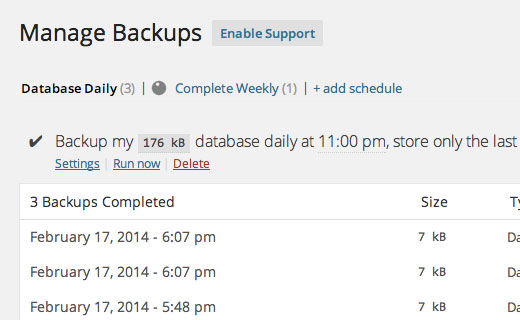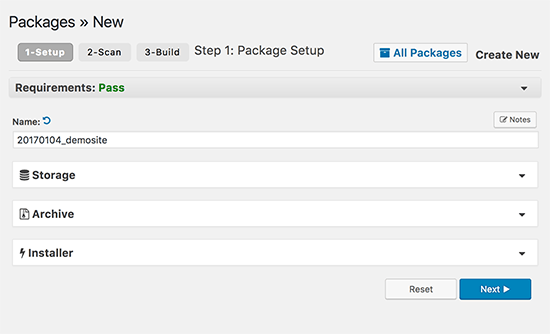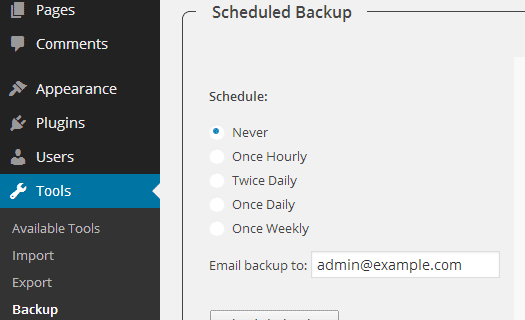Creating regular WordPress backups is the best thing you can do for your website. Backups give you peace of mind and can save you in catastrophic situations when your site gets hacked or you accidentally lock yourself out. There are several free and paid backup plugins for WordPress, and most of them are fairly easy to use. In this article, we will show you the 7 best backup plugins for WordPress.
Important: Many WordPress hosting providers offer limited backup services, but please remember that it is your responsibility to back up your website on your own. Do not rely solely on your hosting provider for backups.
If you are not already backing up your site, then you should pick one of these 7 best WordPress backup plugins and start using it right away.
1. BackupBuddy

BackupBuddy is the most popular premium WordPress backup plugin. It allows you to easily schedule daily, weekly, or monthly backups. It can also automatically store your backups in Dropbox, Amazon S3, Rackspace Cloud, FTP, Stash (their cloud service), and even email it to yourself.
If you use their Stash service, then you also have the ability to do real-time backups.
The biggest advantage of using BackupBuddy is that it is not a subscription-based service, so there is no monthly fee. You can use the plugin on the number of sites mentioned in your plan. You also get access to premium support forums, regular updates, and 1GB of cloud storage to store your backups.
You can even use BackupBuddy to duplicate, migrate and restore websites.
2. UpdraftPlus

UpdraftPlus is a free WordPress backup plugin. It allows you to create the complete backup of your WordPress site and store it on the cloud or download to your computer.
The plugin supports scheduled as well as on-demand backups. You can also choose which files to backup. It can automatically upload your backups to Dropbox, Google Drive, S3, Rackspace, FTP, SFTP, email, and several other cloud storage services.
UpdraftPlus also has a premium version with add-ons to migrate or clone site, database search and replace, and multisite support among other things. The premium version also gets you access to priority support.
3. BackWPUp

BackWPup is a free plugin that allows you to create complete WordPress backup for free and store it on the cloud (Dropbox, Amazon S3, Rackspace, etc), FTP, email, or on your computer.
It is extremely easy to use and allows you to schedule automatic backups according to your site’s update frequency.
Restoring a WordPress site from backup is also very simple. The BackWPup Pro version comes with priority support, ability to store backups on Google Drive, and some other cool features.
4. BackUpWordPress

BackupWordPress is a complete WordPress backup plugin with automatic scheduling support. It allows you to create different schedules for your database and files. The only problem is that the free version does not allow you to store your WordPress backups to a cloud storage service.
If you want to store your backups on Dropbox, Google Drive, FTP, etc, then you will need to purchase a premium extension for it. The extensions are available for each service, and you can buy the one you need or the whole bundle.
5. Duplicator

As the name suggests, Duplicator is a popular WordPress plugin used to migrate WordPress sites. However, it also has backup features.
It does not allow you to create automated scheduled backups which makes it less than ideal primary WordPress backup solution for a regularly maintained site.
6. WP-DB-Backup

With more than 400,000 active installs, WP-DB-Backup is one of the most popular WordPress backup plugins. The only problem is that it only backups your WordPress database.
This means that you will have to back up your media files manually. If you do not update a site too often or do not upload images, then you can use WP-DB-Backup as your primary WordPress backup plugin.
WP-DB-Backup makes it really simple to create database backups, schedule automated backups, and restore your database. It is also a very useful tool for users who do not have access to phpMyAdmin to backup WordPress database manually.
7. VaultPress (with Jetpack)

we use VaultPress to back up our site. VaultPress was founded by Matt Mullenweg (WordPress co-founder) and his team at Automattic.
It has recently become part of Automattic’s another product called JetPack. You will need a JetPack subscription plan to use VaultPress. There are different pricing plans with the different set of features.
VaultPress offers automated real-time cloud backup solution starting at $3.50 per month. Setting up VaultPress and restoring from backups is just a matter of clicks. With some of their packages, they even offer security scans.
There are a few downsides of using VaultPress. First, it is a recurring expense that can add up if you have multiple WordPress sites. Secondly, you will have to subscribe to JetPack, get a WordPress.com account, and install the Jetpack plugin on your site.
Lastly, on the lower plans backups are stored for only 30-days archive. If you want the unlimited backup archive, then you would have to pay the $29 per month fee per website which is significantly more expensive for beginners when compared to other solutions listed here.
We are still using VaultPress because we got grandfathered in at their older pricing which was a lot more favorable.
Final Thoughts
Each WordPress backup plugin has its pros and cons. We use VaultPress for two main reasons. It is extremely easy to use, and it offers real-time incremental backups. What this means is that instead of backing up all of your files every day or every hour, it only creates a backup of what has been updated literally within minutes of the update. This is ideal for a large site like ours because it allows us to use our server resources efficiently.
However, if you run a small to medium size website and hate paying monthly fees, then we recommend the popular BackupBuddy plugin. Why? Because they have their own cloud storage, Stash, which makes it easy for beginners to store their backups in the cloud with a matter of few clicks.
Whichever WordPress backup plugin you end up choosing, please do NOT store your backups on the same server as your website.
By doing that, you are putting all of your eggs in one basket. If your server’s hardware fails or worsts you get hacked, then you don’t have a backup which defeats the purpose of setting up regular backups.
This is why we highly recommend storing your backups on a third-party storage service like Dropbox, Amazon S3, Google Drive, etc.
That’s all. We hope that this list helped you pick the best WordPress backup plugin for your site.

